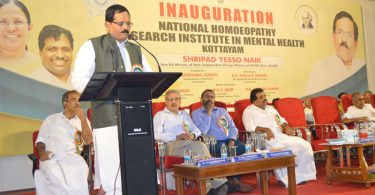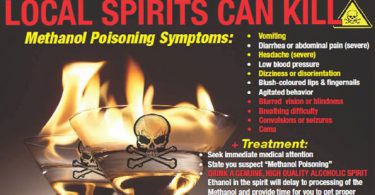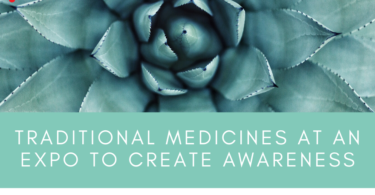Dr Abha (ED): How and when did you first become acquainted with homeopathy?
Dr Saurav Arora (SA): My first encounter with homeopathy was during my childhood, when my parents opted homeopathy over allopathy for me. At that time I was very much fascinated to take the “sweet pills” which were easier to take. By the time I opted Biology stream in higher secondary, I was very much clear that I can opt alternative system of medicine as a career. I was amongst few of my colleagues who opted homeopathy as a profession by choice, and not by chance.
ED: What was the brainchild behind IPRH?
SA: Research in homeopathy has always been a challenge for everyone, be it a researcher or a layman. Various reasons like complex nature of ultra-high dilutions, homeopathic philosophy, lack of apt research orientation, inadequate research literacy, lack of funds, poor motivation, skepticism etc., have always discouraged many to undertake research. The magnitude of existing research is considered insufficient. Also, various research works have been done, but either they are not quoted or understood enough or both.
It is also true that we may overcome most of the obstacles by sharing knowledge, expertise, and resources.
I had the formal entry to BHMS degree course at Dr. B. R. Sur Homoeopathic Medical College, Hospital and Research Centre, New Delhi, India in 2001. Since then I was keen to explore homeopathy from clinical as well as research point of view. By year 2011I decided to pursue my passion towards research in homeopathy in a methodically way. The Initiative to Promote Research in Homeopathy (IPRH) was then founded, formalized and presented to the fraternity. This initiative was started with the launch of the predecessor website www.audesapere.inin March 2011 and later on carried on www.researchinhomeopathy.org. IPRH was started with the aim to promote research amongst every segment of the fraternity, to enhance research awareness, disseminate scientific research, knowledge exchange and extending help for undertaking research in homeopathy through IPRH.
IPRH runs on the philosophy of liberal exchange of scientific knowledge and expertise.
All these years, despite highs and lows, the IPRH followed the core principle “Aude Sapere” – “Dare to be Wise”. Today, this concept is well accepted as evident from increasing number of subscriptions, collaborations, and association with individuals and associations.
ED: With so many authentic research papers, America and England is lobbying against Homeopathy. How do you think it is going to affect the popularity of Homeopathy?
SA: The status and reputation of homeopathy has certainly being affected to a large extent in America, England and other parts of the world. It is evident that homeopathy is gradually thrown out of the public health systems in various countries. There are two major aspects of this scenario. The first and foremost is the pharmaceutical lobbyism. Since homeopathy has affected their “business” to a large extent (being the second most practiced complementary and alternative system of medicine globally), it is expected that certain group of people do not want homeopathy to be used and adopted at grass root level. The second aspect is the deliberate ignorance, i.e. “obstinacy” to reject “evidences”. This is the reason why we are not being able to convince the skeptical minds. It is because of their hidden vested interests. Homeopathy has thousands of peer-reviewed, scientific studies, but yet to be accepted at large.It is also equally true that we must converge our research to priority areas to have more number of studies on particular aspects, to strengthen the “validity” and “reproducibility”.
ED: There are several new methods of homeopathic practice created after Hahnemann. Whichever method a homeopath follows, the case taking remains an important aspect. What is your advice for the novice homeopaths?
SA: Case taking is an art. It is like winning half the battle. The basis of prescription in homeopathy is the “totality”, and many practitioners perceive it from different angles. This is one of the reasons of development of new methods in homeopathy, although claimed to be a part of “classical homeopathy”. In homeopathy we believe in “unity in diversity”. Whatever school we follow, we need symptoms, signs, history, causation, etc. which can only be ascertained through case taking. The individual picture of a patient remains the mainstay for prescribing which can only be fetched with a good case taking. The case taking should not be biased according to any particular school, rather it should be on simple principles as advocated in Organon of Medicine. Once case taking is done, the prescription may be adopted according to one’s own experience, and school of thought.
ED: Which book has influenced you the most and why?
SA: From homeopathic point of view I like basic books like Allen’s Keynotes, Boericke Materia Medica, SR Phatak’s repertory, and Select your remedy by Rai Bahadur Bishambar Das, etc.
From research point of view, every peer-reviewed article is like chapter of a book, giving you an insight about the design and methodology of a research work.
And in general I was greatly influenced by The Alchemist, Autobiography of a Yogi, Many Lives Many Masters etc.
ED: Tell us something about your journey from a graduate to a renounced speaker?
SA: I completed my BHMS course in 2006 and received the Gold Medal in the same year. After completing the internship, I got the opportunity to serve as In-House Physician at Dr. B. R. Sur Homoeopathic Medical College, Hospital and Research Centre (SHMC)for one year. In the year 2008 I was selected as Senior Research Fellow in Extra Mural Research Scheme of Ministry of AYUSH, Govt. of India and worked at SHMC and Institute of Nuclear Medicine and Allied Sciences (INMAS), under DRDO till 2011, handling projects like Autoimmune Thyroiditis, Subclinical hypothyroidism, Vitamin D deficiency disorders etc. Following this I got another opportunity to work as SRF in Homeopathy Department, ISM & H headquarters and Central Council for Research in Homeopathy, under Ministry of AYUSH, Govt. of India, (2011-2014) looking after Fundamental and Collaborative Research section. In year 2011 I founded a not-for-profit initiative, the Initiative to Promote Research in Homeopathy (IPRH). In the year 2015 I was offered the post of Editor-in-chief of International Journal of High Dilution Research, which I am still continuing. During all these years I have always wanted to promote and support homeopathy from various aspects. My association with organizations like Homoeopathic Medical Association of India (Secretary Delhi State), LigaMedicorumHomoeopathica Internationalis (Executive member Indian chapter), Registration Society of Homoeopathy, United Kingdom (co-Director and Faculty), Indian Institute of Homoeopathic Physicians (Executive member)etc., gave me organizational and administrative experience which is important to support homeopathy.
I have always tried to deliver the authentic information coupled with my experience. There is no point delivering a lecture on book knowledge only. I have always considered myself a learner before being a speaker.
ED: What are the toughest cases you healed with Homeopathy according to you?
SA: According to me the toughest cases are the commonest lifestyle diseases. Because they do not exhibit symptoms in initial stages thus they are ignored, resulting in long term chronic diseases and decreased quality of life. You can see increased prevalence and incidences of common diseases for which the conventional system changes the therapeutics every year.On a specific note; I have treated many cases of lifestyle disorders, hypothyroidism, endometrial polyp, depression, molluscum contagiosum, etc. In every case I try to be rational regarding the staging and state of diseased individual.
ED: Your piece of advice for fresh graduates on overcoming fear of practicing?
SA: The fear only comes when we have lack of knowledge. Knowledge is power. If one reads and understands homeopathy as a passion, he shall succeed one day. But if we opt homeopathy just for earning, things may not go smooth. This fear is also associated with peer pressure to earn money as per society’s standard and not as per one’s requirement. I have seen many doctors changing profession just for the reason of money. Homeopathy needs hard work, knowledge and patience. If you talk to any stalwart of homeopathy you shall come to know the hard work they went through to be what they are today. I advise young, budding doctors to believe in homeopathy and themselves, be passionate, and learn everyday. Don’t be in hurry to be a legend.
ED: What is the scope of homoeopathy in foreign countries and what will be your piece of advice for the homoeopaths willing to practice abroad?
SA: Due to pharmaceutical interference, increased demand of evidences and lack of public health support system, homeopathy needs a strong support system in foreign countries. It is becoming difficult to practice under government patronage at these places, but at the same time it is the private clinical practice that is saving homeopathy from being lost and forgotten at these places. Homeopaths needs to be united at global level to safeguard the rights of homeopaths and homeopathy. We must have professional bodies to represent homeopathy at government level in every country so that homeopathy is practiced with a respect and support.
ED: How you see the future generation of Homoeopaths in India, what will be your advice to them?
SA: Today, the whole world is looking at India for support and promotion of homeopathy, as Homeopathy has got government patronage as well as emotional attachment in India. The major responsibilities lies on us to preserve the sanctity of homeopathy. Homeopathy has a major scope in India we act in right direction now, else the day may not be far when we would be subjected to political battles and pharmaceutical lobbyism. The two main aspects evidence based homeopathy and scientific research in homeopathy must be followed at every level.
ED: What do you feel is the most gratifying for you as a professional – medical practice, teaching, writing or research? Or; what has been/will be your most gratifying achievement as a homeopath?
As a homeopath I enjoy connected to clinical practice as well academics. I have tried never to compromise with my clinical practice. I, along with my wife Dr. Bharti Arora manage three clinics in West Delhi where I am happy to practice and earn a respectable livelihood through homeopathy only.
The best part of a profession is theory/teachings applied to clinical practice. In my point of view teaching, research, writing and clinical practice are all connected.If we practice evidence based homeopathy we are following scientific methods, a good clinical practice, a piece of good writing/report, etc. The only thing we need is the guidance to sharpen these skills so that we can convey the true message in an academic manner.
ED: What are your future plans?
SA: My future plans include scientific and research oriented learning, to bridge the gap between clinical practice and research, and to create an academic support system for homeopathy. There are many areas in homeopathy which need exploration and standardization. I shall try my best to streamline homeopathic practices, promote research education and safeguard homeopathy from skeptics and non-believers.
Dr. Saurav Arora
BHMS (DLI), Gold Medalist
Founder & Director: Initiative to Promote Research in Homeopathy (IPRH)
Editor-in-chief: International Journal of High Dilution Research
Co-Director: Registration Society of Homoeopathy, United Kingdom
General Secretary: HMAI Delhi State Branch
Founder:Arora’s Homeopathic Clinic, Vivid Homeopathy and Beyond Avogadro




